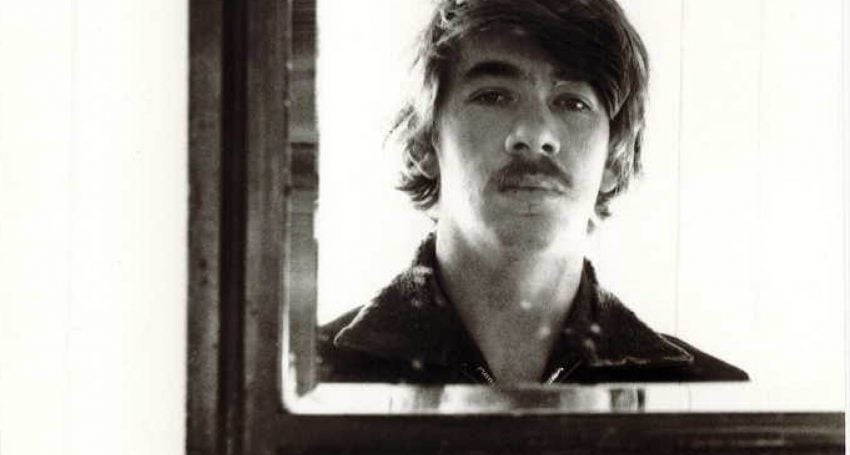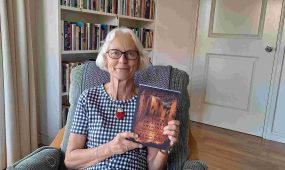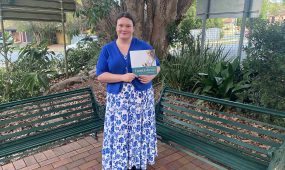The Gang of One
Books & Guides
The Rev’d Canon Jim McPherson reviews a book of poetry written by the late Australian Anglican poet Robert Harris: “Throughout his career, he showed a remarkable power to ambush with words, images, ideas, and catchy titles”

Robert Harris published five books of poetry before his death in 1993, aged 41, apparently either of influenza or a heart attack. When his body was eventually discovered, his friend and fellow-poet Barry Dickins wrote that “[he] had only known two things in his short life: poverty and poetry”. Harris’ poetry has been included in the massive Australian Poetry Since 1788 and Les Murray’s Anthology of Australian Religious Poetry. Nevertheless, The Gang of One is the first ‘select’ publication of his work, thereby making it available to those who, like myself, were utterly unaware of it.
Philip Mead’s Introduction to this ‘selected’ collection provides a biographical sketch, including a moving and symbolic account of his reception into the Anglican Church, taken from Harris’ own ‘Autobiographical Notes’. Harris’ mother died when he was six years old, and ‘Six Years Old’ describes something of its impact: “My work on the earth was to stare it down and say nothing”. Several of his other poems reference her as well. Yet his lyricism shines through:
“On the filthiest square in his city
yes, there, is the seashell below,
and overhead
gold. Gold & cobalt” (‘The Convert’).
Harris’ depth, insight, skill, and productivity leave me in awe. The selections included here from his first book Localities (1973) show remarkable poise and proficiency for one so young. Throughout his career, he showed a remarkable power to ambush with words, images, ideas, and catchy titles, such as Memoir of Cherry Bomb & the Stomach Pump; A Reader of Poetry Comes to a Tea Warehouse; Isaiah by Kerosene Lantern Light; From a Seat in Joe’s Seafoods, A Horse on the Bus…He can conjure a scene in a few words (‘Cane Country’), and often ends with an ambush .
Advertisement
While he shows a depth and a learning from the proverbial school of hard knocks, he also displays a wide-ranging academic learning. This is particularly evident in the poems in Jane, Interlinear (based on the short politically fraught life of Lady Jane Grey, queen of England for nine days until her execution in 1553), ‘Little Iliad’, and (from his Royal Australian Navy years), ‘Seven Songs for [HMAS] Sydney’. He is the only poet I have ever read who managed to weave a Hebrew phrase from Genesis 1.2 appropriately and surprisingly naturally into his text (‘The Transportees’ Dormitory’); presumably (judging by the note on p.216 re Lady Jane Grey) relying on The Hebrew-Greek-English Bible.
His spiritual acumen and poetic proficiency persuaded me to give him the benefit of the doubt about what I initially thought was a misprint (“alter” for “altar”) in ‘Reading the Hymn Book’; if “alter” is indeed correct, Harris is making a stunningly profound theological statement (with which I wholeheartedly concur).
Such a rich collection! I imagine I will be drawn back to it again and again for its breadth, its depth, its insight and energy. I have been drawn in by the power of Harris’ writing in a way I struggle articulate.
Advertisement
I register two minor matters. First, p.121 includes a quote from Rudolf Bultmann, which is wrongly credited on p.217 to “Richard” Bultmann; this can be corrected in later printings.
Second, the collection’s title The Gang of One is perhaps the title of one of Harris’ own poems, but if so it has not been included in this selection – which is somewhat puzzling. If it is not a Harris title, where did it come from, why was it chosen, and why has it not been duly acknowledged?
Thank you, Judith Beveridge, Philip Mead, and Grand Parade Poets. Australian poetic enterprise and creativity will be all the richer for this publication.
Reading the Hymn Book (pp.188-189)
…my social decision is to drive this morning,
voluntarily, parking, yes, in clothes good enough,
making time for a coffee because it will bore me,
the early is done in an hour, The Second Order,
if I can
forego the Reformation and Samuel Marsden
for the suburbs where houses cross their fingers with horseshoes
nailed for luck onto bargeboard. We will see
who is clearly illiberal soon enough, so I steer
clear of fellowship, fellow vets. To call this
absolutes too is a démarche, as it is to cite
the great poetry. And a melody from the thirteenth century
like a sea shanty sung by a workmate, seas and
the sun’s long fulvour in my eyes. I love it when
I can hear them, their songs were better than
Petrarch in Provence; Heave Away, Santa Anna.
Then the limitation to central, musical range
because we are here, after all, not there.
Time only divides upon the time we turn
and reassembles here where stone may float,
or so the artist-glaziers must have thought
composing their colours with fearless primaries,
till earth and design were in time and in division,
where a man will wear his defects,
a woman a plain face all her life.
I file forward in reverie
often reading the placement of their scenes. You’ll leave
with Lazarus to catch your eye hint hint.
And it sweeps through me like a breeze at the alter rail
which is history I know and take my turn,
where the priest goes back and forth on tessellations,
a blue and white pattern the kneelers gaze above,
secular for underfoot, the stars.
Barry Dickins, quoted in Australian Poetry Since 1788, ed Geoffrey Lehmann & Robert Gray, 2011.
The Gang of One: Selected Poems by Robert Harris. Grand Parade Poets.





